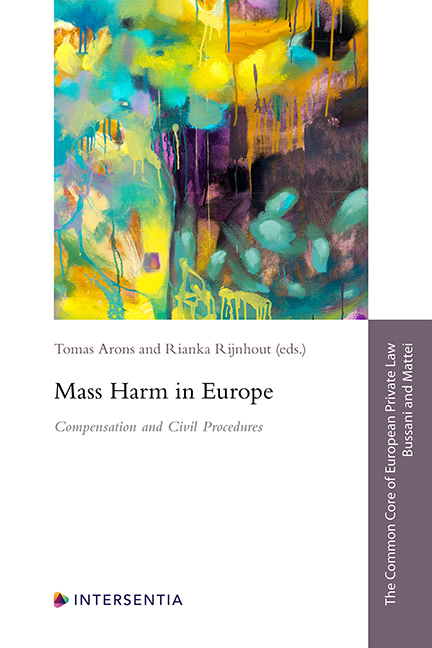Case 2: Occupational Disease
Published online by Cambridge University Press: 03 April 2024
Summary
CASE
A group of painters, who all worked for the same employer, suffer from nasal cancer probably caused by working with harmful substances in paint. These harmful substances were present in paint between 1970 and 1989. Although the employer knew about the detrimental health effects, he did not take adequate preventive measures. The health effect of this exposure took many years to develop into an illness. After 30 years, the first painter was diagnosed with this type of cancer.
A group of workers suffering from that particular type of cancer demand compensation from their former employer. Will they receive compensation and, if so, for what losses? Is it possible to start a collective proceeding? If so, please indicate the most important bottlenecks in this particular case.
DISCUSSIONS
AUSTRIA
Matthias Dangl and Georg E Kodek
Operative Rules
Under Austrian tort law, the employer’s liability faces two difficulties in this case. First, the employer is only obliged to compensate an insured person for damage caused by a bodily injury as a result of an occupational disease if he intentionally caused the occupational disease (§ 333 para 1 of the General Social Security Code). In our opinion it is highly questionable whether intention can be affirmed in this case. Second, claims for compensation are subject to a limitation period of 30 years (§ 1489 ACC).
In any case, the employees are entitled to receive non-pecuniary benefits (such as curative treatment and rehabilitation) as well as payments (such as a disability pension) from the social security system in the event of an occupational disease.
A collective action (as described in the Austrian section in the procedural rules chapter) would be possible.
Legal Formants
The rationale behind the rule on intentionally causing the occupational disease (§ 333 para 1 of the General Social Security Code) is that employers pay the premiums for their employees’ accident insurance. In return, they are privileged in terms of liability vis-à-vis the employees. Although the employer knew that the substances had detrimental health effects, it is by no means certain that he acted intentionally as to the injury.
- Type
- Chapter
- Information
- Mass Harm in EuropeCompensation and Civil Procedures, pp. 151 - 180Publisher: IntersentiaPrint publication year: 2023



